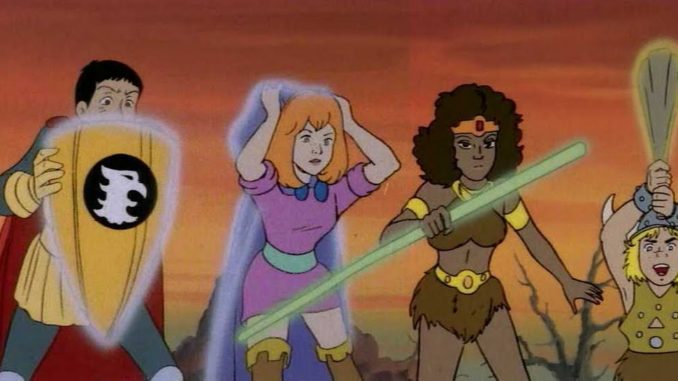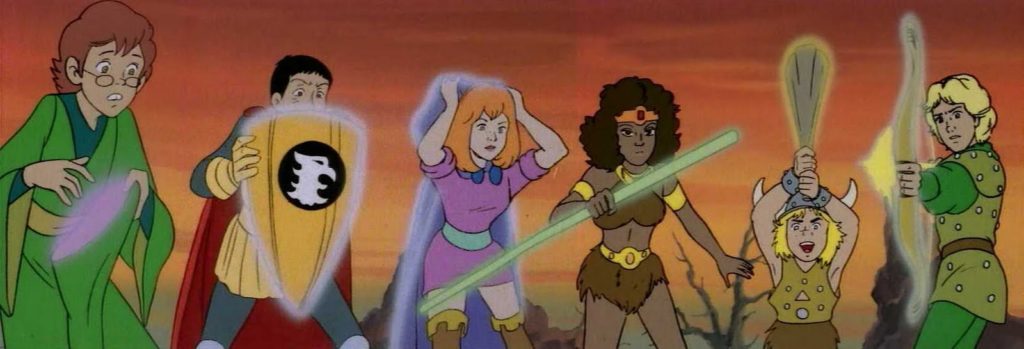
I recently took a second stab at my rules for Level 0 play for 5th Edition Dungeons and Dragons after finding out that I was far too conservative in my first take. Creating characters within the frame work I had created didn’t impart the feel that I was looking for, and I failed to see how the rules would help the player to appreciate the classes’ 1st-level abilities. So, I decided to take an axe and clear away a lot more of the class abilities granted to a character at Level 0. I actually got rid of all of them – a Level 0 character gets no class abilities until he gains 1st level (barring full progression spellcasting classes, more on them later). Unlike racial abilities, I just couldn’t justify giving a Level 0 Rogue a slightly diminished version of Sneak Attack or a Barbarian a less potent version of their Rage. Instead, I want the play sessions to focus on those characters “learning” and “earning” the use of those abilities through play so that they could fully appreciate the abilities when they got them.
Spell casters are a slightly different beast – their classes are predicated on them having access to magic. But again, these are not yet fully-trained and competent casters. So, I opted to give all the full casting classes (Bard, Cleric, Druid, Sorcerer, Warlock, and Wizard) one cantrip of their choice. Now that is not a very powerful ability in and of itself, but the choice does lend to a great amount of characterization for the caster in question. Do they take an aggressive attack cantrip? Do they instead select a utility cantrip they can use in multiple situations? Or are they going to take a niche selection, powerful in the right situation but also one that they may never actually use?
Anyway, on to the rules! The rules for creating a Level 0 character are the same as they are for creating a 1st level character. You generate your ability scores as normal and you select your race, getting those proficiencies and abilities. When it comes time to pick your class, you gain only the proficiencies listed below. You choose a background as normal and those skill and proficiencies granted to you by your class. You gain hit points equal to that of a 1st level character, but you do not have a hit die, earning that only when you reach 1st level. Finally, you have a +1 proficiency bonus. I really liked the idea of only getting access to one saving throw right away and so I kept that. Like everything else, this selection can help give the PC a little bit more characterization, such as the Rogue that favors Intelligence over Dexterity.

Once the character has reached 1st level, they gain everything else normally granted them by their class, getting additional weapon, armor and skill proficiencies as well as gaining proficiency with their second saving throw and all of their first level class abilities and advance like normal.
Barbarian
Armor: Light armor
Weapons: Simple weapons
Tools: None
Saving Throws: Strength OR Constitution
Skills: Choose one from Animal Handling, Athletics, Intimidation, Nature, Perception, and Survival
Bard
Armor: None
Weapons: Simple weapons
Tools: Three musical instruments of your choice
Saving Throws: Dexterity OR Charisma
Skills: Choose any one
Cantrips: Any one
Cleric
Armor: Light armor
Weapons: Simple weapons
Tools: None
Saving Throws: Wisdom OR Charisma
Skills: Choose one from History, Insight, Medicine, Persuasion, and Religion
Cantrips: Any one
Druid
Armor: Light armor
Weapons: Clubs, daggers, darts, javelins, maces, quarterstaffs, scimitars, sickles, slings, and spears
Tools: Herbalism kit
Saving Throws: Intelligence OR Wisdom
Skills: Choose one from Arcana, Animal Handling, Medicine, Nature, Perception, Religion, and Survival
Cantrips: Any one
Fighter
Armor: Light armor and shields
Weapons: Simple weapons
Tools: None
Saving Throws: Strength OR Constitution
Skills: Chose one from Acrobatics, Animal Handling, Athletics, History, Insight, Intimidations, Perception, and Survival.
Monk
Armor: None
Weapons: Simple weapons
Tools: Choose one type of artisan’s tools or one musical instrument
Saving Throws: Strength OR Dexterity
Skills: Choose one from Acrobatics, Athletics, History, Insight, Religion, and Stealth
Paladin
Armor: Light armor and shields
Weapons: Simple weapons
Tools: None
Saving Throws: Wisdom OR Charisma
Skills: Choose one from Athletics, Insight, Intimidation, Medicine, Persuasion, and Religion
Ranger
Armor: Light armor
Weapons: Simple weapons
Tools: None
Saving Throws: Strength OR Dexterity
Skills: Choose one from Animal Handling, Athletics, Insight, Investigation, Nature, Perception, Stealth, and Survival
Rogue
Armor: None
Weapons: Simple weapons
Tools: Thieves’ tools
Saving Throws: Dexterity OR Intelligence
Skills: Choose two from Acrobatics, Athletics, Deception, Insight, Intimidation, Investigation, Perception, Performance, Persuasion, Sleight of Hand, and Stealth
Sorcerer
Armor: None
Weapons: Daggers, darts, slings, quarterstaffs, and light crossbows
Tools: None
Saving Throws: Constitution OR Charisma
Skills: Choose one from Arcana, Deception, Insight, Intimidation, Persuasion, and Religion
Cantrips: Choose one
Warlock
Armor: None
Weapons: Simple weapons
Tools: None
Saving Throws: Wisdom OR Charisma
Skills: Choose one from Arcana, Deception, History, Intimidation, Investigation, Nature, and Religion
Cantrips: Choose one
Wizard
Armor: None
Weapons: Daggers, darts, slings, quarterstaffs, and light crossbows
Tools: None
Saving Throws: Intelligence OR Wisdom
Skills: Choose one from Arcana, History, Insight, Investigation, Medicine, and Religion
Cantrips: Choose one
My biggest struggle was with the question of equipment. Personally, I would start the characters off with their clothing and maybe a small weapon that made sense for the class they were working towards. Beyond that, my preference would be to dole out their 1st level equipment through the first few sessions. The GM can tie that equipment into the story and give it meaning for the character in a way that isn’t gained from selecting it from a list. A fighter’s longsword becomes much more meaningful when it is his family’s heirloom blade given to him by his father during play. This also gives the GM a chance to work with the player to give the character equipment with special significance that isn’t typically a part of the standard loadout. Additionally, each background tends to give the player a piece of equipment that is from their past. Giving them their equipment in this fashion gives you a chance to play the story of them finding that equipment or exploring where they found it. But if all of that that is not your preference, you can simply give the starting equipment from their background, a weapon they are proficient in, and a set of light armor if they are proficient in that, and then give them their standard loadout when they reach 1st level, letting them figure out where and how they received them (or not).
Now, this process leads to very basic characters that look similar in practice. But that is by design. I feel this forces the player to consider why the character is selecting that class in an additional dimension than they normally do – specifically why they were drawn to that class in the first place. What event or events in their life made them desire to follow the path of the Fighter or the Rogue? Why did they choose to study as a Wizard instead of choosing a more martial pursuit? What happened to the Cleric that made them decide to devote their life to the service of a church or deity? Taking focus off of the class mechanics also allows a player to explore the various personality traits, bonds, flaws, and formative events presented by each background and maybe even play out certain selections in several sessions, leading to richer character development and more satisfying experiences at the table.
